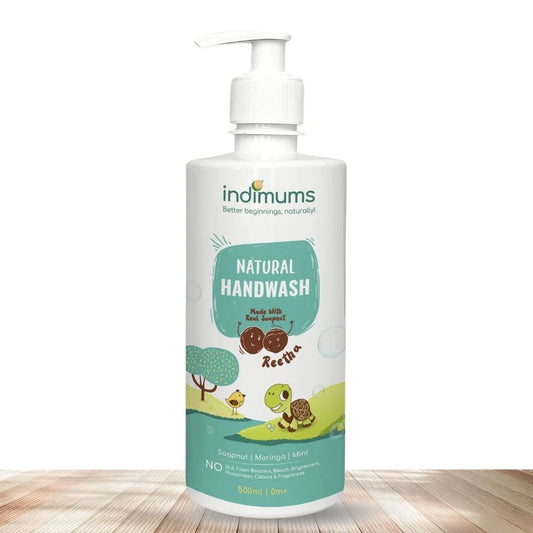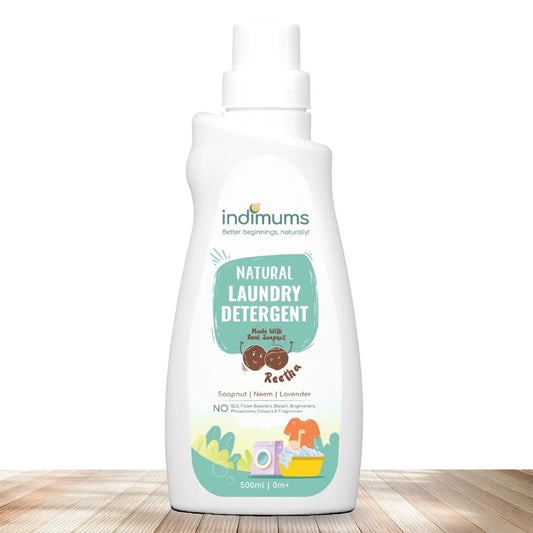Babies are a bundle of joy, but they can also be quite sensitive when it comes to their health. Baby allergies are a common concern for parents, often leading to discomfort, skin reactions, and other health issues. One of the most frequent concerns is baby rash causes, which can stem from allergens like dust, pet dander, or certain foods.
Understanding the triggers of baby allergies—whether environmental, dietary, or genetic—can help parents take proactive steps to protect their little ones. In this blog post, we’ll explore the key causes of baby allergies and effective solutions to ensure your child's well-being..
The Most Common Baby Allergy Triggers
1. Food Allergies Food allergies in babies are among the most prevalent types of allergies. Common allergens include:
a. Cow's Milk: Cow's milk protein allergy (CMPA) is a common issue among infants. Symptoms may include digestive problems, skin rashes, or respiratory issues.
b. Eggs: Egg allergies can manifest in a variety of ways, from hives to digestive discomfort.
c. Peanuts and Tree Nuts: These allergies can be severe, potentially causing anaphylaxis, a life-threatening reaction.
d. Soy: Soy allergies often lead to digestive problems, skin issues, or respiratory symptoms in infants.
2. Environmental Allergies Babies can also be affected by allergens in their environment. Common environmental triggers include:
a. Dust Mites: These microscopic creatures can cause allergies when their droppings become airborne. Symptoms may include sneezing, runny nose, or skin rashes.
b. Pet Dander: Cats and dogs are known to produce allergenic proteins that can cause allergies, leading to symptoms like itchy eyes, runny nose, and coughing.
c. Pollen: Seasonal allergies, often triggered by pollen, can affect infants as well, causing symptoms such as sneezing and congestion.
3. Allergic Reactions to Insect Stings and Bites Insects like bees, wasps, and mosquitoes can trigger allergies in some babies, resulting in localized swelling, itching, and redness. In severe cases, anaphylaxis may occur.
Solutions for Managing Baby Allergies
1. Consult with a Pediatrician If you suspect that your baby has an allergy, the first step is to consult with a pediatrician. They can help identify the allergen and recommend the most appropriate course of action, which may include allergy testing.
2. Allergen Avoidance Once you've identified the allergen, taking steps to avoid it is crucial. For food allergies, this means eliminating the trigger from your baby's diet. For environmental allergens, such as dust mites or pet dander, regularly cleaning and maintaining a allergen-free environment can help.
3. Allergy Medications Depending on the severity of the allergies, your pediatrician may prescribe medications to relieve symptoms. Antihistamines can help with runny noses and itchy eyes, while epinephrine auto-injectors may be needed for severe allergic reactions.
4. Allergen Immunotherapy In cases of severe allergies, allergen immunotherapy, commonly known as allergy shots, may be recommended. This treatment involves gradually exposing the baby to the allergen in a controlled manner, helping their immune system build tolerance.
5. Emergency Action Plan For allergies that could lead to anaphylaxis, having an emergency action plan in place is essential. This should include a written plan and an epinephrine auto-injector, which can be administered if a severe reaction occurs.
Child Skin Allergy Treatment at Home
Understanding and managing baby allergies can be a daunting task for parents, but it's crucial for the well-being of your child. By identifying common triggers, consulting with a pediatrician, and implementing appropriate solutions, you can help your baby lead a healthier, more comfortable life.
Remember that every child is unique, and the approach to managing their allergies should be tailored to their specific needs. With the right knowledge and support, you can ensure your little one thrives despite their allergies.
In addition to these measures, it's important to consider the products you use in your baby's daily life. Organic brands that use natural ingredients can provide added protection against allergies and harmful germs. One such natural cleansing agent is "Soapnut or Reetha". Soapnut, is derived from the fruit of the Sapindus plant and offers several benefits:
-
Hypoallergenic: Soapnut is gentle on a baby's sensitive skin and less likely to cause irritation or allergic reactions, making it an excellent choice for baby laundry and personal care products.
-
Natural Cleaning Power: Soapnut is an effective, all-natural cleansing agent, which means it can remove dirt and stains without the use of harsh chemicals or artificial fragrances.
-
Environmentally Friendly: Organic brands that incorporate soapnut into their products often prioritize sustainability, making them a greener choice for eco-conscious parents.
-
Chemical-Free: Soapnut-based products are free from synthetic additives and harsh chemicals commonly found in conventional cleaning and baby care products, reducing the risk of exposure to potentially harmful substances.
By opting for organic brands that use natural ingredients like Soapnut, you can take an extra step in safeguarding your baby from harmful germs and allergies. These products not only help keep your baby's environment clean and safe but also contribute to a healthier, more sustainable future for your little one.




